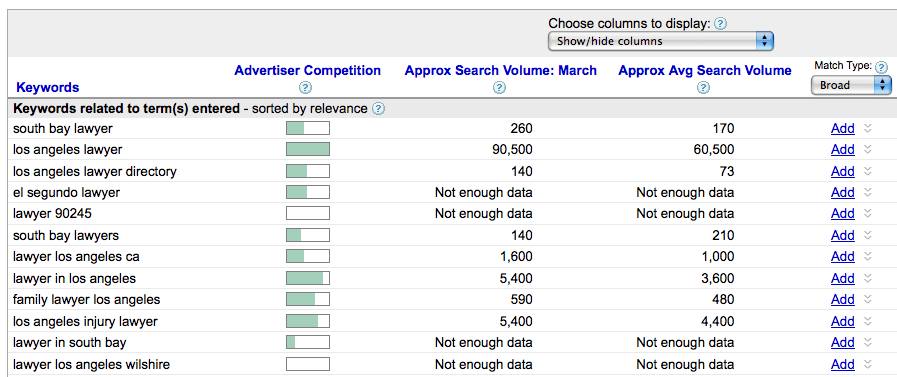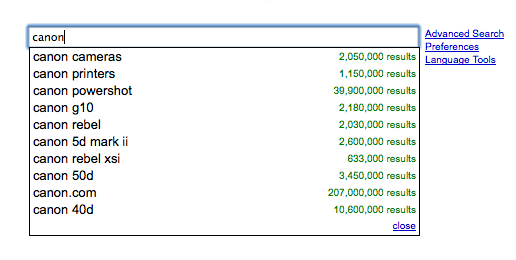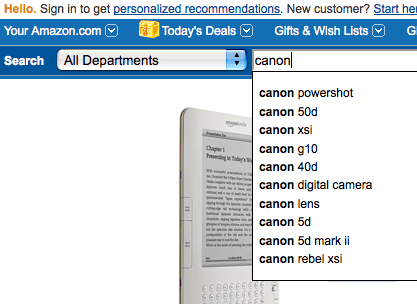Yesterday we hosted our Basic SEO Techniques Webinar (slideshow now available, link below) and I thought I’d elaborate further on the portion we briefly glanced over keyword analysis.
First Off, What Is Keyword Analysis?
In short, keyword analysis is the process of going through a web site and identifying what the most important keywords are that will drive targeted and relevant traffic to that web site. This can be comprised of a list of top-selling items, products with the best ROI, services offered, industry-specific terms, or much more. There really isn’t a finite number of keywords a web site can target, but at the same time, it’s important to target keywords that help bring in the types of visitors that bring you closer to your business’ goal.
Is It Any Different From Normal Keyword Analysis?
Yes! When doing keyword research for SEO, another variable must be figured in: How well the web site currently performing. More established websites with an aged domain and strong backlinks are in a better position to target broad keywords, while newer websites with little or no content are at a disadvantage and are probably better off targeting longer-tail keywords. Just because two websites are selling the same items or providing similar services, does not necessarily mean the keywords they target should be the same.
Why Is Keyword Analysis Important for SEO:
Keyword analysis, if done incorrectly can be detrimental to an SEO campaign. Not only is money badly spent, but time and opportunity loss. A great method used by more and more SEOs is analyzing PPC data for top-performing keywords and optimizing for those.
Types Of Keywords Worth Targeting:
New to this? Here are the type of keywords you’ll want to consider targeting:
- Top-Selling Products: Pick your top three and run with those.
- Your Brand Name: Are you ranking third for your company’s name? Why aren’t you first? Optimize for this term!
- Top-Converting Services Or Products: What product or service is converting the best from PPC ads? Target this term! In time, higher organic rankings for this term should improve your quality score and help lower your CPC.
- Category & Genre Specific: Are you selling shoes? Chances are you won’t rank for “shoes” alone. Start targeting main categories and sub-categories such as “running shoes,” “basketball shoes,” “mens jogging shoes,” etc.
- Model # Specific Terms: Are you selling the Cisco IP Phone 7940 Model? Target that term, not just “VOIP Phones” or “Cisco Phones.”
Organize Your Keywords
- Select five broad keywords. If Google let you target five keywords with PPC ads and gave you the top spot free for one month, what keywords would you choose? These are probably the long-term goals that you’d want to do well on and can potentially bring in the most relevant traffic. These are also often the hardest to rank for (i.e. lawyer, criminal attorney, etc.).
- Select 10 longer-tail keywords (longer hanging fruit). These are your immediate goals (i.e. El Segundo lawyer, South Bay attorney, etc.).
Further Keyword Research

- Once you’ve made this list, drop it into the Google Adwords Keyword Tool and see what results come up. Did you miss any synonyms? If so, start refining your list to add in more terms. At this point, some light bulbs should be flashing. You should now have a sense of what keywords bring in the most traffic and the ones less searched.

- Use Google Suggestions to your advantage. What keywords are coming up? While how to optimize for these variations is another blog post in itself, this should give you an idea into terms that can bring in relevant traffic or that your competitors may be optimizing for.

- Expanded list of useful related searches. Use this data to your advantage.

- Amazon searches! What are people searching for and buying on Amazon.com?
Hopefully, this post has provided you a basic understanding into the keyword selection and analysis process for SEO. Keyword analysis is not always the same for all web sites. User intent and search trends often also play a role into what keywords should be optimized for.
Additional Resources
SEO Basics Webinar (Slideshow)
Google Adwords: Keyword Tool
SEOBook Keyword Suggestion Tool
Google Trends






Responses